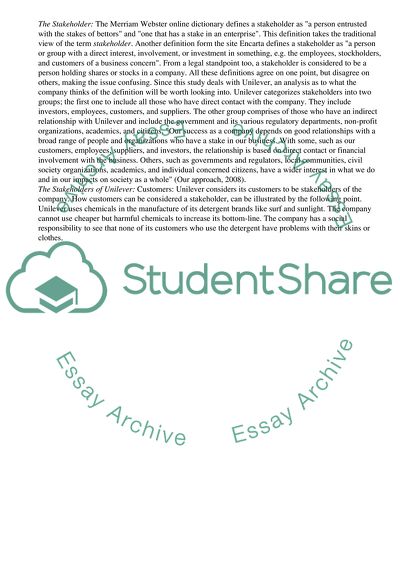Cite this document
(Role of Stakeholders in Multinational Company Case Study Example | Topics and Well Written Essays - 1750 words, n.d.)
Role of Stakeholders in Multinational Company Case Study Example | Topics and Well Written Essays - 1750 words. https://studentshare.org/management/1512224-organisations
Role of Stakeholders in Multinational Company Case Study Example | Topics and Well Written Essays - 1750 words. https://studentshare.org/management/1512224-organisations
(Role of Stakeholders in Multinational Company Case Study Example | Topics and Well Written Essays - 1750 Words)
Role of Stakeholders in Multinational Company Case Study Example | Topics and Well Written Essays - 1750 Words. https://studentshare.org/management/1512224-organisations.
Role of Stakeholders in Multinational Company Case Study Example | Topics and Well Written Essays - 1750 Words. https://studentshare.org/management/1512224-organisations.
“Role of Stakeholders in Multinational Company Case Study Example | Topics and Well Written Essays - 1750 Words”. https://studentshare.org/management/1512224-organisations.


